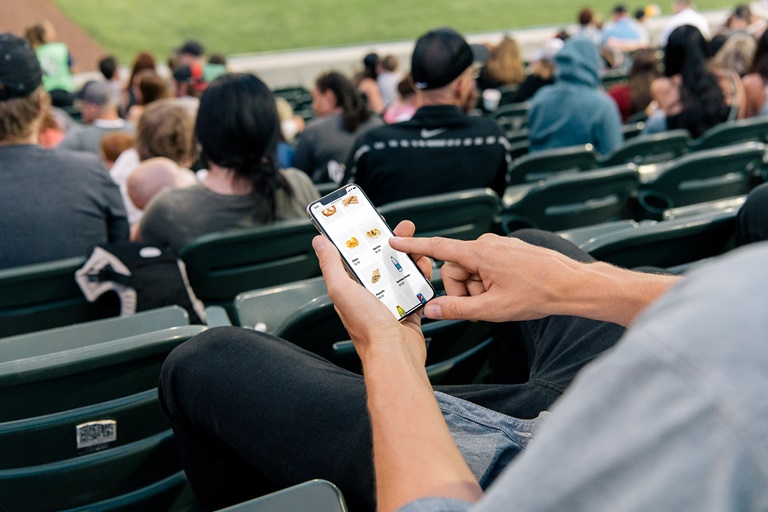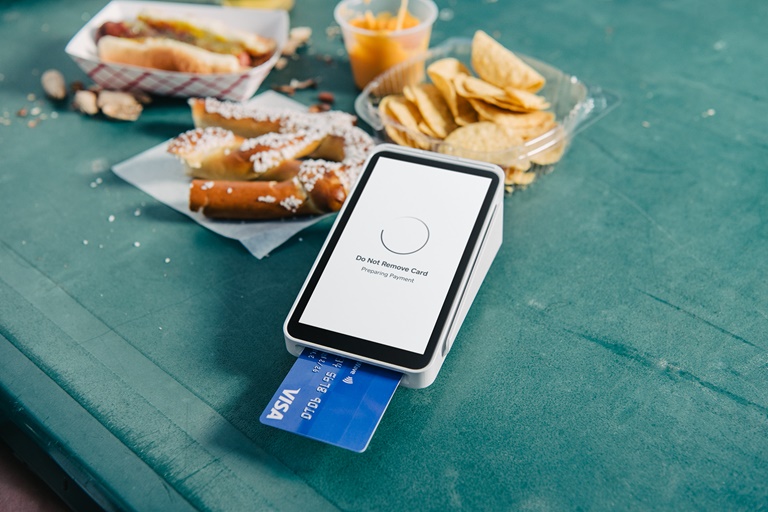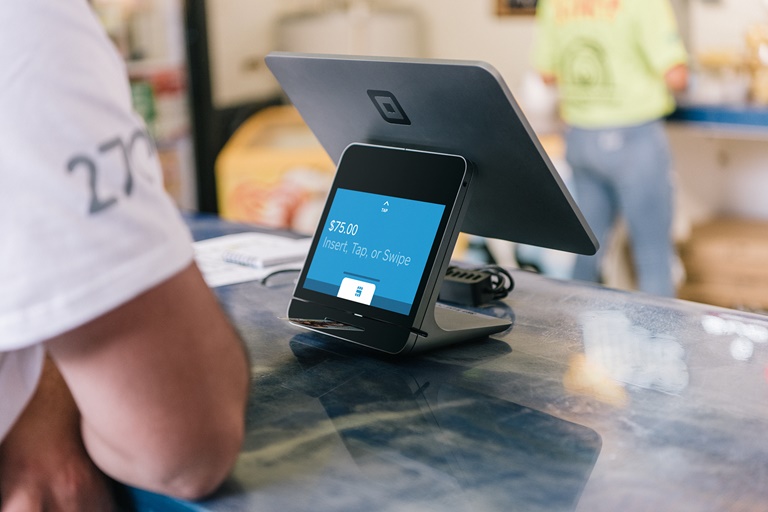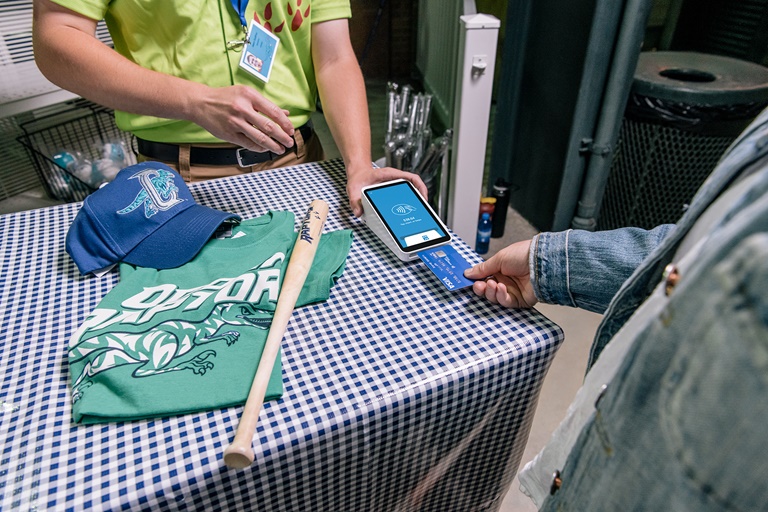COVID, Cashless and the Return to Live Events

As expected, the return to live sports and entertainment has been swift and robust—not a tentative trickle back to operations, but rather a formidable blast of consumer demand and new ways of doing business. Because venues have been closed for so long, they're looking to diversify their offerings to meet transformed expectations.
To provide perspectives on how this affects facility operations and data management, we sat down with Ashely Grech, Global Head of Sales for Square, and a 2021 SBJ Power Player: Sports Facility Technology.
Q: Can you discuss the key challenges facing venue operators as fans return to games post-pandemic?
The number-one concern on everyone’s minds is creating a safe fan experience – one that engages and feels just as special as before, and that also considers the realities of post-pandemic commerce and events. For many, this starts with evolving the concession experience to reduce crowds and put purchasing power directly in consumers’ hands, such as offering in-seat ordering or setting up self-serve ordering kiosks throughout concourses.
This is followed by another key challenge – access to data to inform decisions. Operators don't yet know entirely what may have changed about fan preferences and purchasing habits. For instance, your child may be old enough to really enjoy games, and now you're purchasing more tickets and children's t-shirts at the jersey store, along with fewer beers and more kids meals. So, the data to see where and what fans are purchasing throughout their stadium will be key to ensuring alignment, optimization and lead-nurturing opportunities. As venue teams consider implementing new technologies, it’s critical to ensure they’ll have insight to those new behaviors.
Also, because venues have been closed for so long, they're looking to diversify their offerings, which requires flexible hardware and commerce operations. With Square products, those operators can move all the hardware around as needed, and create exactly the experience they want, day to day.

Q: What are the key trends in cashless and fintech you see heading into the fall of 2021?
In our conversations with stadiums, we’re seeing a lot of interest in mobile hardware terminals and e-commerce ordering, which takes the cashless trend to a new level. Stadiums and venues are coming to us to implement solutions like these to reduce crowding at concession points and reduce the friction for fans to buy a meal or merchandise, right from their seats. While many sports businesses first think of Square for their payments or point-of-sale needs, they end up choosing us when they realize we can offer even more technology and solutions for them, all integrated and queued up to provide the data insights they need on the backend.
Q: What factors should sports properties consider when vetting partners for on-site, online and app platforms?
Sports properties should consider a platform flexible enough to seamlessly integrate technologies that support both offline and online fan experiences. Additionally, a top consideration we hear from sports properties is whether a new partner will integrate with their existing tech stack and be flexible enough to adapt to future new technologies. They want a platform-first approach to address the dynamic needs of sellers in the sports and entertainment world, especially helping stadiums modernize commerce experiences for fans. Square's APIs allow stadium operations to integrate Square into any front-end fan experience or any back-end data system, meaning we can play nicely with any vision or enterprise architecture.

Q: How are enterprises utilizing contactless technologies for lead gen and building new revenue streams?
The beauty of contactless is its ease of implementation and ubiquity. Today, real-time data access on fan transaction history gives teams and stadiums new actionable insights for the first time. Being able to determine where and what a customer purchases throughout the course of an event is so much more powerful when driven by the insights provided through contactless payments technology, and enables operators to entice fans back with tailored, personalized offers that convert better. Square has offered contactless payments technology in our hardware for years, so stadiums and other businesses using our technology were able to adapt to changes in commerce and consumer preferences without any additional components, which has been another important factor in moving business forward quickly.
Q: What is the most important takeaway from 2020-2021 that will inform how the sports industry moves forward in 2022 and beyond?
Across all industries, we saw an unprecedented shift to e-commerce and consumer expectations, which has led to new buying habits with serious sticking power among consumers. Customers now expect immediate fulfillment and customization to their exact order or preferences. Ordering online, whether to pick up merchandise at a stadium store or have concessions delivered directly to your seat, is something we predict will be commonplace in the years to come. Stadiums that can integrate those types of new technologies and sales channels right into their existing operations will have a real strategic advantage – and they’ll be able to access the data insights to continue to hone and grow their business in the years to come.

To learn more about seamless integration of Square’s contactless technology, visit www.square.com.





